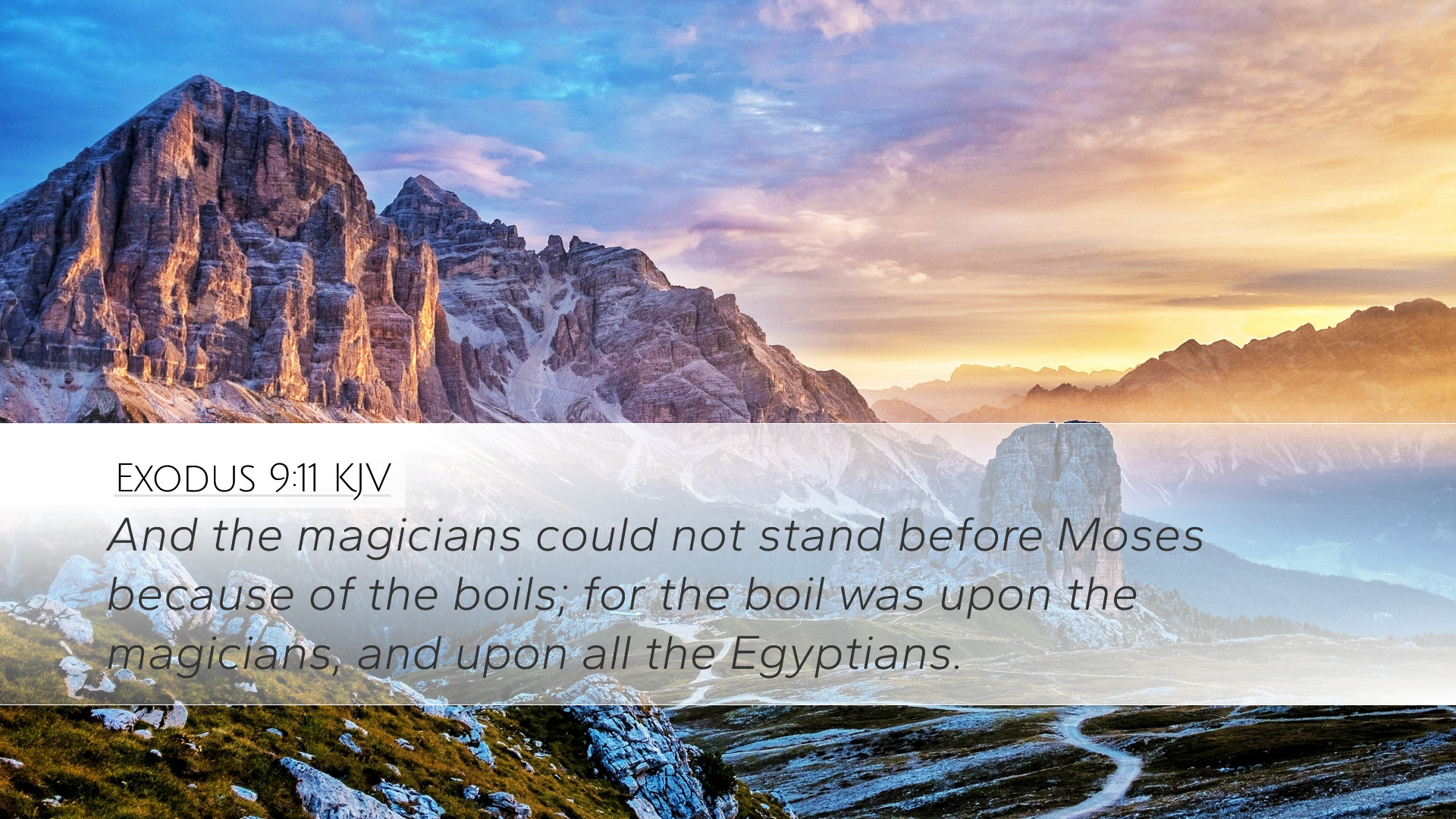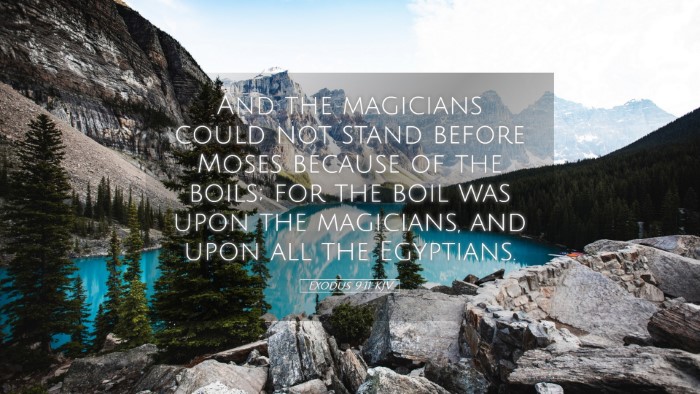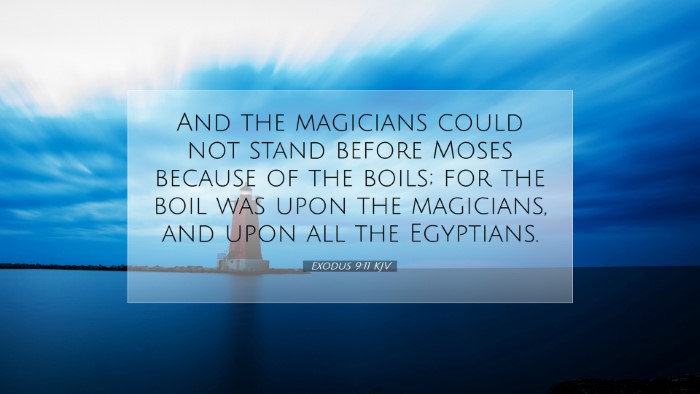Exodus 9:11 Commentary
Bible Verse: "And the magicians could not stand before Moses because of the boils; for the boils were upon the magicians, and upon all the Egyptians."
Introduction
This verse occurs within the narrative of the plagues inflicted upon Egypt as a judgment against Pharaoh for his refusal to release the Israelites from bondage. The account serves to highlight both the power of God and the impotence of man-made wisdom and magic in the face of divine authority.
Contextual Analysis
In the preceding chapters, God sends a series of plagues against Egypt to demonstrate His sovereignty and to compel Pharaoh to let His people go. The magicians, who represent the best of human ingenuity and knowledge, had previously been able to replicate some of the miracles performed by Moses and Aaron. However, with the plague of boils, their power is severally diminished.
Key Themes
- Divine Sovereignty: The inability of the magicians to replicate the boils illustrates God's supreme authority over all creation and human endeavors.
- Human Limitation: The magicians, once confident in their abilities, are rendered helpless by the severity of the plague, highlighting the limitations of human wisdom.
- The Hardness of Heart: Despite witnessing the power of God, Pharaoh’s heart remains hardened, which is a recurring theme throughout the narrative.
Insight from Commentators
Matthew Henry's Commentary
Matthew Henry notes that the boils inflicting the magicians are indicative of God's judgment and serve as a clear sign of His displeasure against Egypt. He emphasizes the idea that no matter how powerful the magician's arts were, they could not stand before the authority of God. This moment serves as a powerful reminder that all human contention against God's will ultimately fails.
Albert Barnes' Notes
Albert Barnes expounds on the significance of the boils, suggesting that they were not merely physical afflictions but also a spiritual message. The inability of the magicians to replicate this plague underscores the futility of relying on human wisdom and sorcery when confronted with God's omnipotence. Barnes highlights that the magicians' impotence led them to acknowledge their limits, drawing attention to the ultimate reality that God is in control.
Adam Clarke's Commentary
Adam Clarke provides a thorough analysis of the implications of this verse, suggesting that the boils were a direct act of God intended to humiliate the Egyptian magicians. Clarke points out the irony in their inability to stand before Moses, noting that they were supposed to be the representatives of the Egyptian gods, but instead, they found themselves powerless. He highlights the notion that physical suffering may lead to a deeper spiritual understanding and recognition of God’s authority.
Theological Implications
This verse raises profound theological questions about the nature of suffering and divine intervention. The magicians, once powerful and proud, encounter a reality that destroys their illusions of grandeur. For theologians and scholars, this serves as a point of reflection on human pride in the face of God's omnipotence. It beckons us to question what it means to truly submit to divine authority amidst affliction and adversity.
Practical Applications
- Recognizing Human Limitations: As pastors and leaders, acknowledging our limitations can lead us to a greater reliance on God’s strength and wisdom.
- The Call to Humility: The account serves as a call for humility in ministry and in life; recognizing that God may use our weakest moments to reveal His power.
- Embracing Spiritual Warfare: The interaction between the magic of the magicians and the miracles of God illustrates the ongoing conflict between the forces of good and evil.
Conclusion
Exodus 9:11 encapsulates a moment of divine demonstration that left both the magicians and the Egyptians in a state of helplessness. It serves as a profound reminder to all believers of God’s ultimate authority and the futility of relying on our own strength in opposition to divine will. For pastors, theologians, and students, this passage should inspire deeper contemplation on the nature of God’s power and our own responses to His sovereignty.


